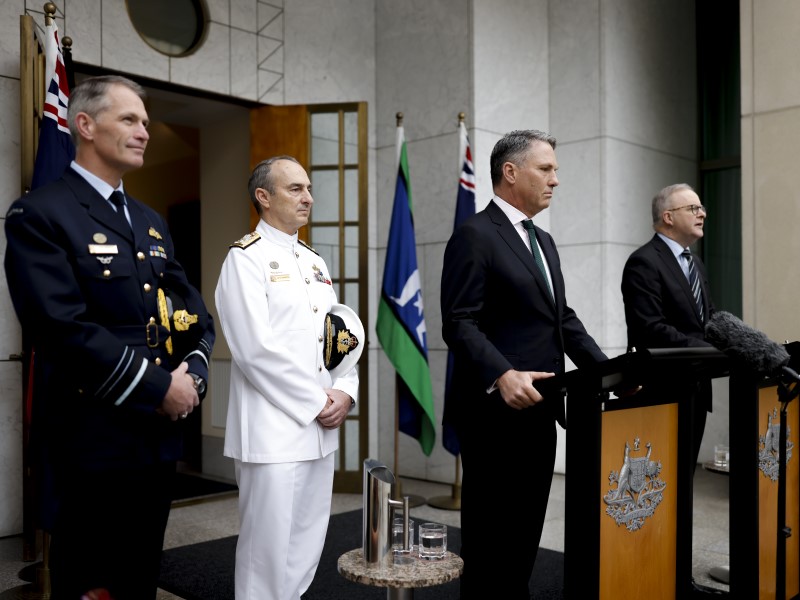AUKUS partners are considering working with Japan on advanced capability projects under the trilateral security pact, but any future work will take place on a “project by project” basis.
In a joint Defence ministers’ statement on Tuesday, the three nations said they are “considering cooperation” with Japan, highlighting its existing close bilateral defence partnerships and the broader need to engage with like-minded partners.
It comes after America’s ambassador in Tokyo, Rahm Emanuel, penned a piece in the Wall Street Journal that said Japan was “about to become the first additional Pillar II partner” in AUKUS.
While Pillar I of AUKUS focuses on the development of nuclear-powered submarines, Pillar II includes several advanced capability priorities such as cyber, AI and autonomy, quantum technologies, and hypersonics.

Following the release of the statement, Prime Minister Anthony Albanese said AUKUS partners would consider “project by project the desirability of further engagement” in the advanced technology arrangements under Pillar II.
He described this as a “natural evolution” of existing Defence engagement with Japan such as through the Quad partnership. Australia and Japan also announced in January that work was progressing capabilities in undersea communication and interoperability.
The statement also flagged that industry and government representatives on the AUKUS Advanced Capabilities Industry Forum, announced in December, will meet for the first time on Tuesday.
The forum is a chance for industry associations and government representatives to develop policy, technical, and commercial frameworks for the delivery of advanced capabilities.
Defence minister Richard Marles, speaking alongside the PM on Tuesday, said that “AUKUS is not a security alliance, that’s not what it is. AUKUS is a technology sharing agreement”.
Part of AUKUS’ ambition is to pool the Defence technology industrial bases across the three partner countries through the creation of a new export licence-free regime facilitated in Australia by recent reforms to its Defence Trade Controls Act.
The United States has also passed legislation to create exemptions for Australia and the UK in its International Trade in Arms regime in December 2023, while reforms to the UK’s Open General Export License Program are still progressing.
The first trilateral AUKUS innovation challenge was launched at the end of March, and focuses on developing electronic warfare capabilities. Australia’s chief defence scientist Professor Tanya Monro previously said there would be “a regular drumbeat” of innovation challenges.
Technology demonstration exercises are also held between the AUKUS partners under Pillar II, such as a trial of autonomous ground vehicles in South Australia in late 2023.
Do you know more? Contact James Riley via Email.

